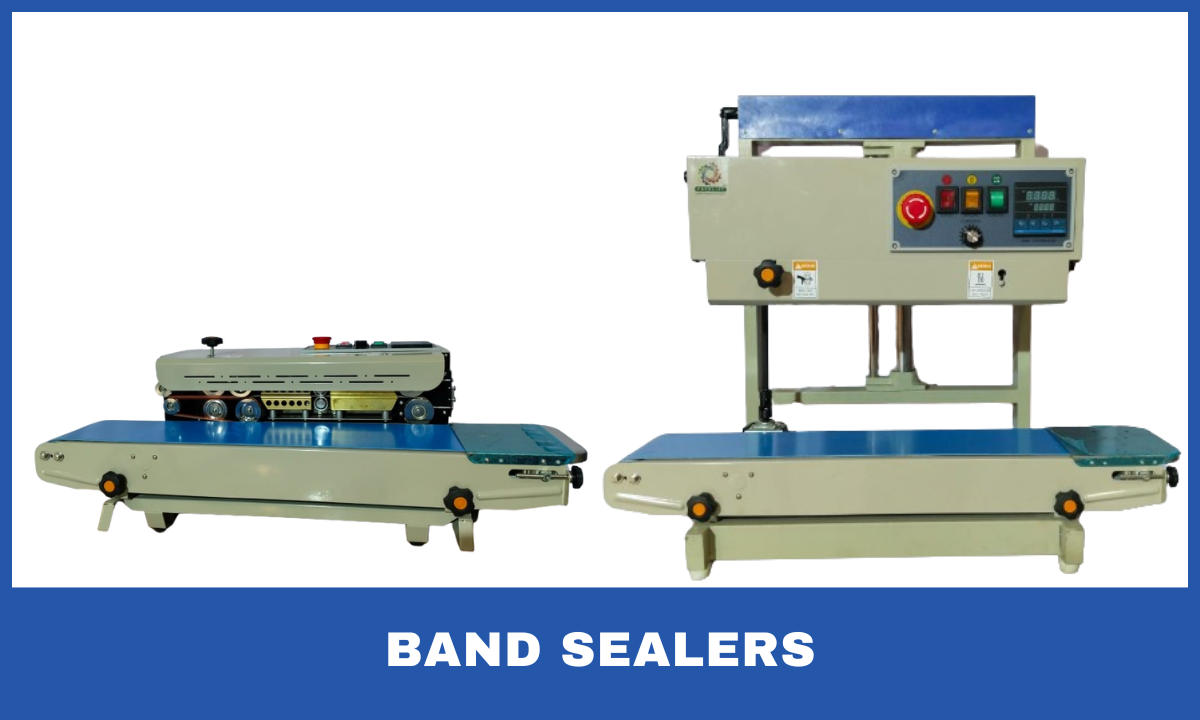
Among the various tools and machines used in the industry, the band sealer stands out as an essential piece of equipment. Whether you're in food processing, pharmaceuticals, or any other industry that requires secure packaging, understanding the importance and functionality of band sealers can be incredibly beneficial. This blog will delve into what band sealers are, how they work, their benefits, and key considerations when choosing one.
What is a Band Sealer?
A band sealer, also known as a continuous band sealer, is a machine used to seal various types of plastic films or bags. It is widely used in industries for packaging products that need to be sealed to prevent contamination, preserve freshness, or ensure tamper-proofing. Band sealers can handle a variety of materials, including polyethylene, polypropylene, and laminates, making them versatile for different packaging needs. There are two main types of band sealers, Horizontal Band Sealers and Vertical Band Sealers.
How Does a Band Sealer Work?
The operation of a band sealer is straightforward yet highly efficient. Here’s a step-by-step breakdown of how a band sealer typically works:
- Feeding the Bag: The open end of a filled bag is fed into the machine.
- Heating Elements: The machine uses heated sealing bands to heat the edges of the bag.
- Sealing Process: The heated bands apply pressure to the edges of the bag, melting and fusing them together to form a strong seal.
- Cooling: After sealing, the bag passes through a cooling section to solidify the seal.
- Output: The sealed bag is then discharged from the machine, ready for further handling or shipment.
Benefits of Using a Band Sealer
1. Efficiency: Band sealers can operate continuously, allowing for high-speed packaging without the need for frequent stops. This makes them ideal for high-volume production lines.
2. Consistency: These machines provide uniform sealing, ensuring each package is sealed with the same quality and strength. This consistency is crucial for maintaining product integrity and consumer trust.
3. Versatility: Band sealers can accommodate various bag sizes and materials, offering flexibility for different packaging requirements.
4. Durability: The seals created by band sealers are typically strong and durable, providing excellent protection against leaks, contamination, and tampering.
5. Cost-Effective: By automating the sealing process, band sealers can reduce labor costs and minimize waste associated with manual sealing methods.
Key Considerations When Choosing a Band Sealer
1. Material Compatibility: Ensure the band sealer is compatible with the materials you use for packaging. Some band sealers are designed to handle specific materials better than others.
2. Sealing Speed: Depending on your production requirements, you might need a band sealer with a higher sealing speed. Consider the throughput of the machine and match it with your production demands.
3. Seal Width and Strength: Different applications may require different seal widths and strengths. Ensure the band sealer can provide the necessary specifications for your products.
4. Temperature Control: Accurate temperature control is vital for achieving a strong and reliable seal. Look for a band sealer with precise temperature control features.
5. Ease of Use and Maintenance: User-friendly machines with straightforward maintenance procedures can significantly reduce downtime and increase productivity.
